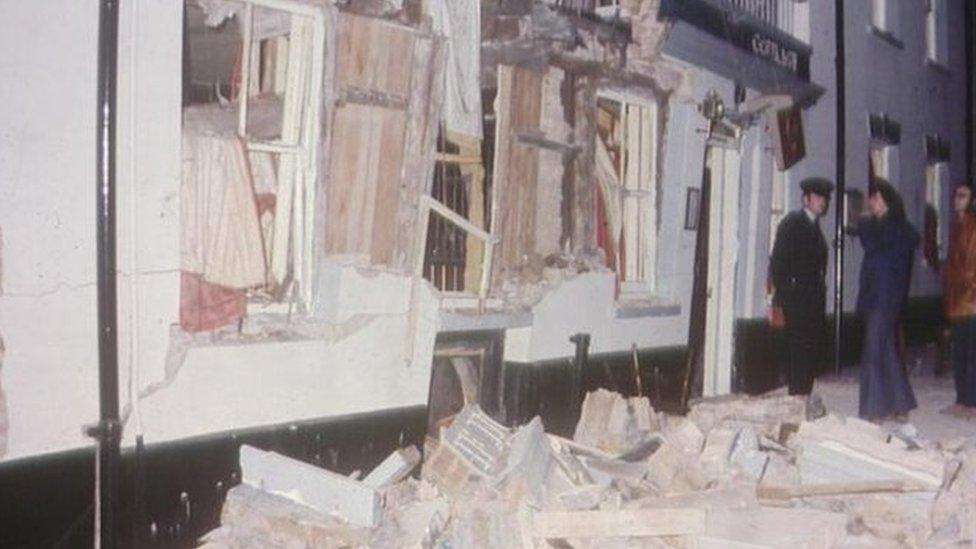Guildford pub bombs inquest: People ‘tore at debris’ after attack
- Published
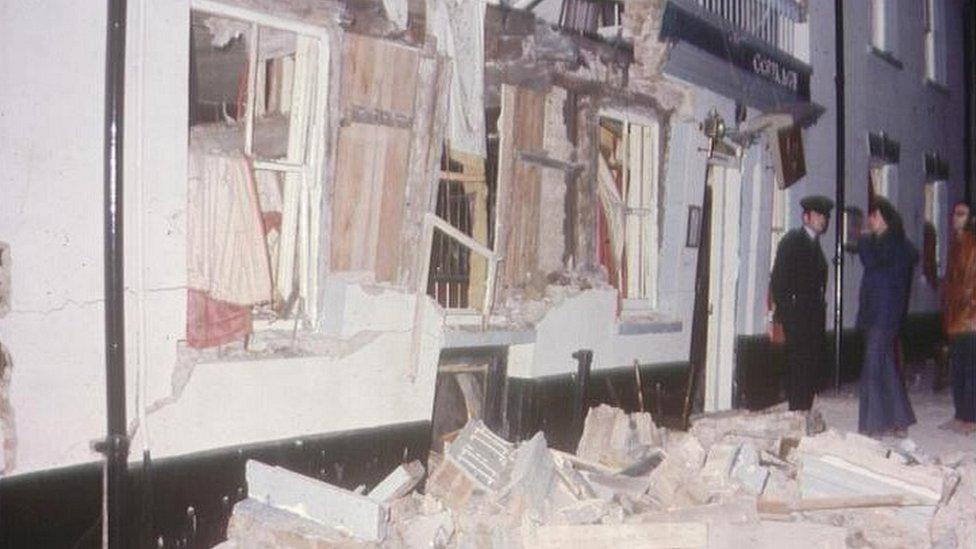
A former surgeon who treated the injured and dying after the IRA bombed a pub in 1974 has told an inquest how he entered the building to find people "tearing at debris".
Wynne Weston-Davies recalled "a scene of total chaos" when he arrived at the Horse and Groom in Guildford.
The medic said he fought to save guardsman William Forsyth who made it to hospital alive, but he later died.
Five people died when two pubs in the town were bombed, and 65 were injured.
The Guildford Four and Maguire Seven were wrongly-convicted before the IRA claimed responsibility.
Mr Weston-Davies told Woking Coroner's Court: "There was still a lot of smoke and haze, probably dust, drifting around.
"I saw where the door was and my impression was the door had been blown off.
"I could see there were people inside busily tearing at debris. I went inside and it was a scene of total chaos."
Mr Weston-Davies, who was a surgical registrar at the time of the bombings and is now a clinical research director in the biotech industry, said it appeared that people were buried under the debris.
He said the pub was "crammed with debris, broken furniture, bar fittings".
"There were firemen pulling wreckage out so they could find people under the rubble," he added
He told the inquest he was taken back to the Royal Surrey County Hospital because he wasn't needed at the scene.

Caroline Slater, 18, Ann Hamilton, 19, William Forsyth, 18, John Hunter, 17, and plasterer Paul Craig, 21, died in the first explosion at the Horse and Groom
Oliver Sanders, counsel to the inquest, said four of the five people who died were pronounced dead at the scene, but guardsman William Forsyth survived long enough to reach hospital.
Mr Weston-Davies said the 18-year-old army recruit had an extremely badly injured leg and very heavy bleeding.
He said he tried to apply a tourniquet to his leg because he was suffering "torrential" blood loss, but the soft tissue was too badly-damaged.
The medic said doctors tried to get a drip into Mr Forsyth and sedated him, but he later had a cardiac arrest and was pronounced dead at 22:50, two hours after the bombing.
He told the inquest there had been "vigorous attempts" to resuscitate the teenager.
The other people who died were 21-year-old civilian Paul Craig and soldiers Ann Hamilton, 19, Caroline Slater, 18, and John Hunter, 17.
The hearing continues.

Follow BBC South East on Facebook, external, on Twitter, external, and on Instagram, external. Send your story ideas to southeasttoday@bbc.co.uk.
Related topics
- Published1 July 2022
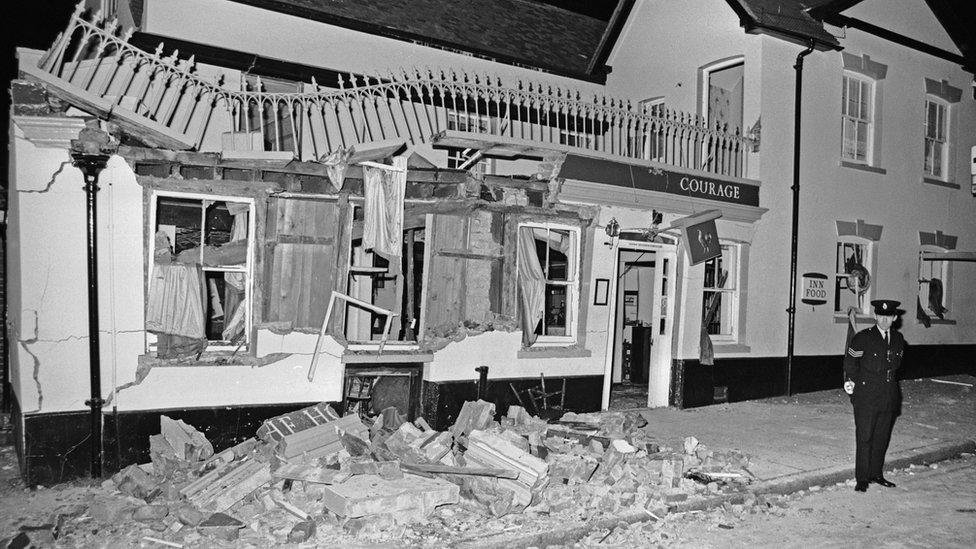
- Published29 June 2022

- Published28 June 2022
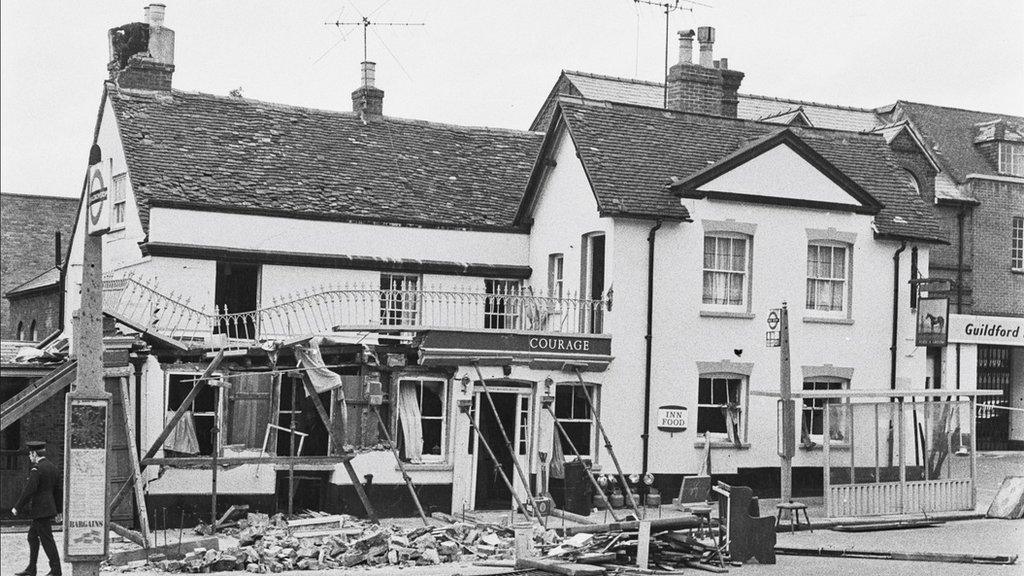
- Published27 June 2022
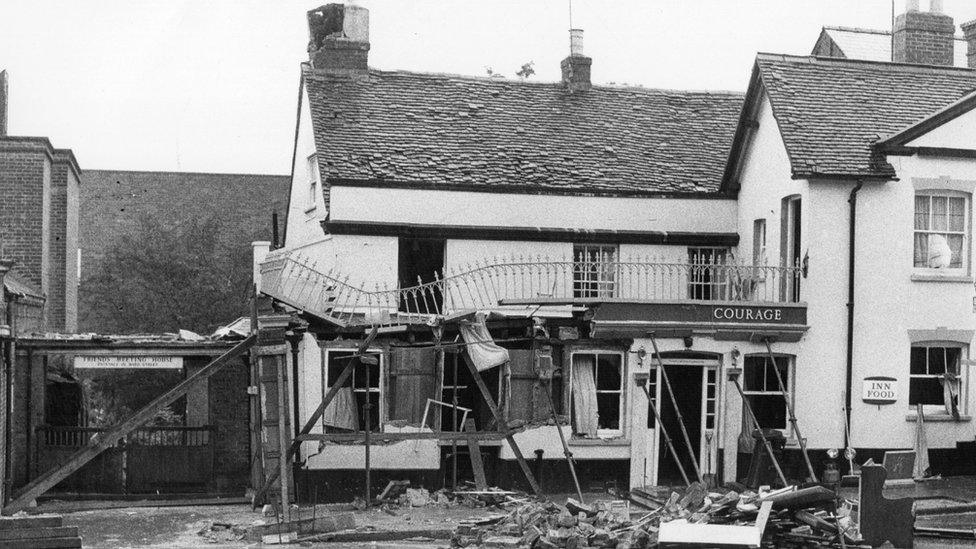
- Published21 June 2022
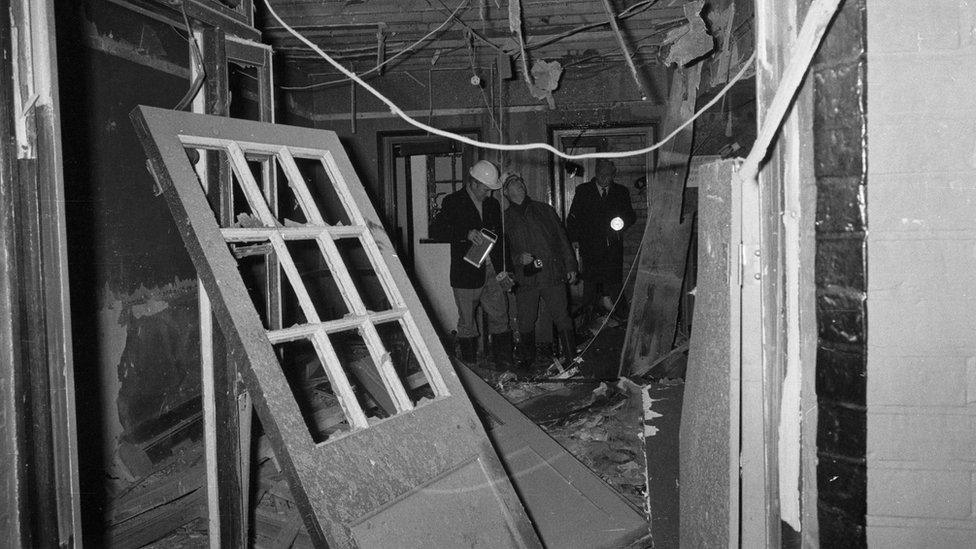
- Published20 June 2022
